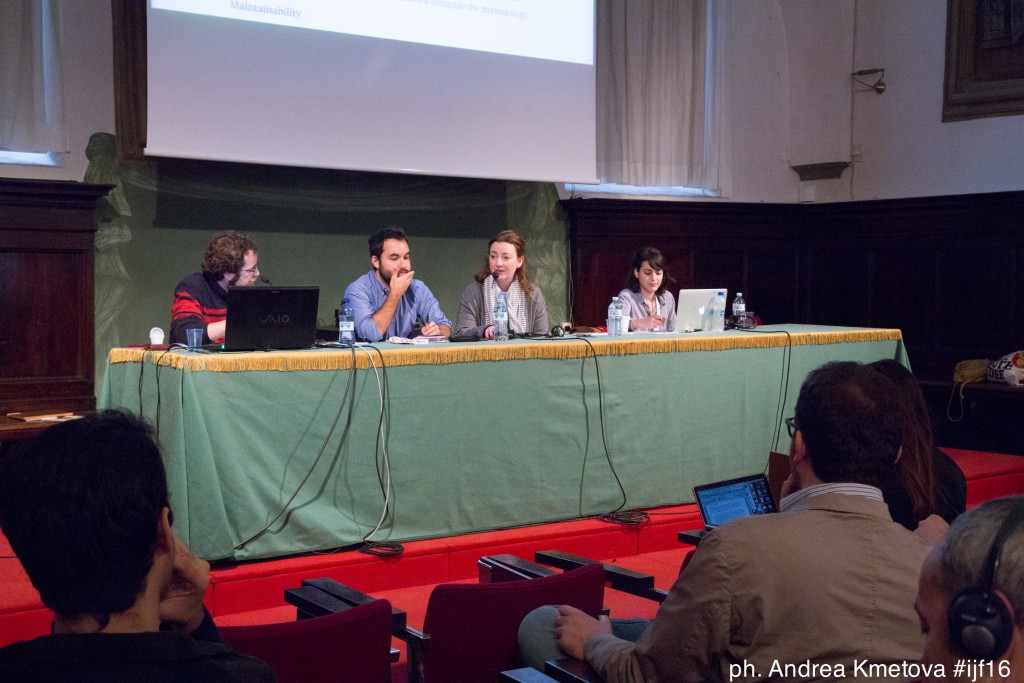
Stories do not stop at borders.
Reporting should not stop at borders, either.
“I think every European journalist should ask every morning why we don’t have a European Pro Publica yet,” freelance journalist Jacopo Ottaviani said during the panel discussion “Towards a European data journalism manifesto” at the International Journalism Festival in Perugia.
“It would help to counter-balance the problems we have in Europe.”
It would make it easier to report on stories like the hamburger horse meat scandal in 2013, said Anne-Lise Bouyer, a project manager at Journalism++.
Ottavini said it also “could be helpful to keep our nerves under control” after events like the terrorist attacks in Paris in 2015 and in Belgium in March.
Europe doesn’t have a Pro Publica yet because the countries are so diverse, said Sylke Gruhnwald, leader of the investigation unit at SRF Data. Each country has a different culture, a different set of values and a different language.
It would be “easy to (establish a European Pro Publica),” Gruhnwald said. “But somebody has to do it. I don’t know who the someone is going to be.”
Until then, European journalists should work together, the journalists agreed.
And that work should start with a common understanding of the nature of the work.

So Bouyer, Gruhnwald, Ottaviani and El Confidencial data journalism unit coordinator Daniele Grasso have been working together to develop a “European Data Journalism Manifesto.”
“The idea of a manifesto came about because we realised data journalism is used everywhere, but it is very difficult to find a definition. There is no definition of data journalism,” Bouyer said.
The manifesto defines data journalism as journalism that “makes use of data” for the “purpose of finding and telling true stories in the public interest.” It could include analyses, visualisation, databases or apps that help users explore the data themselves.
The manifesto says the methodology for collecting and interpreting data should be public, and the data should be presented in a way that makes it reproducible.
Bouyer, Grasso, Gruhnwald and Ottaviani still are developing the manifesto – and hope to do so with help from other European journalists.
After European journalists agree on the definition of data journalism, they should be able to collaborate more, they said.
And then – maybe – they can work towards developing a European news organisation like Pro Publica.